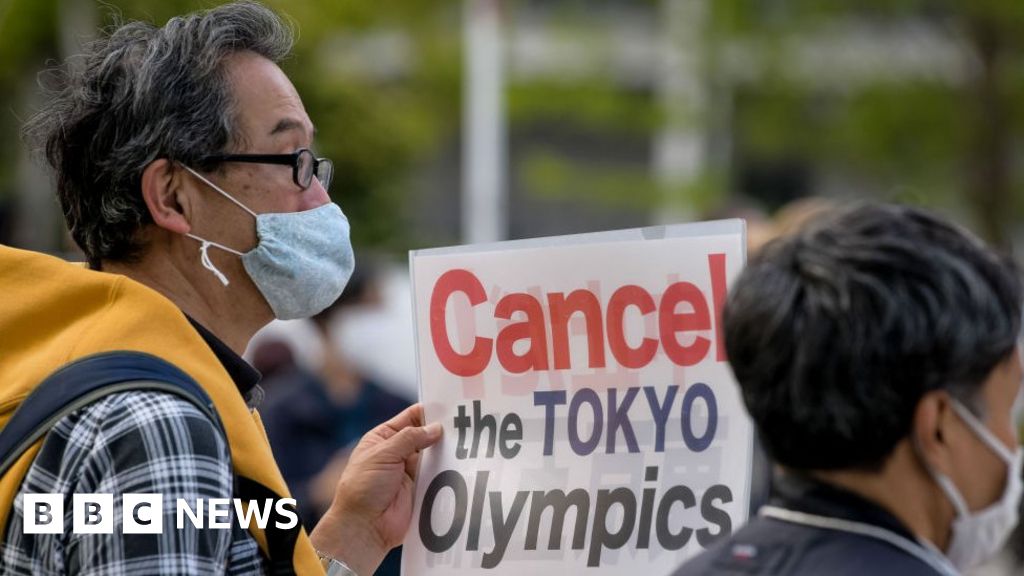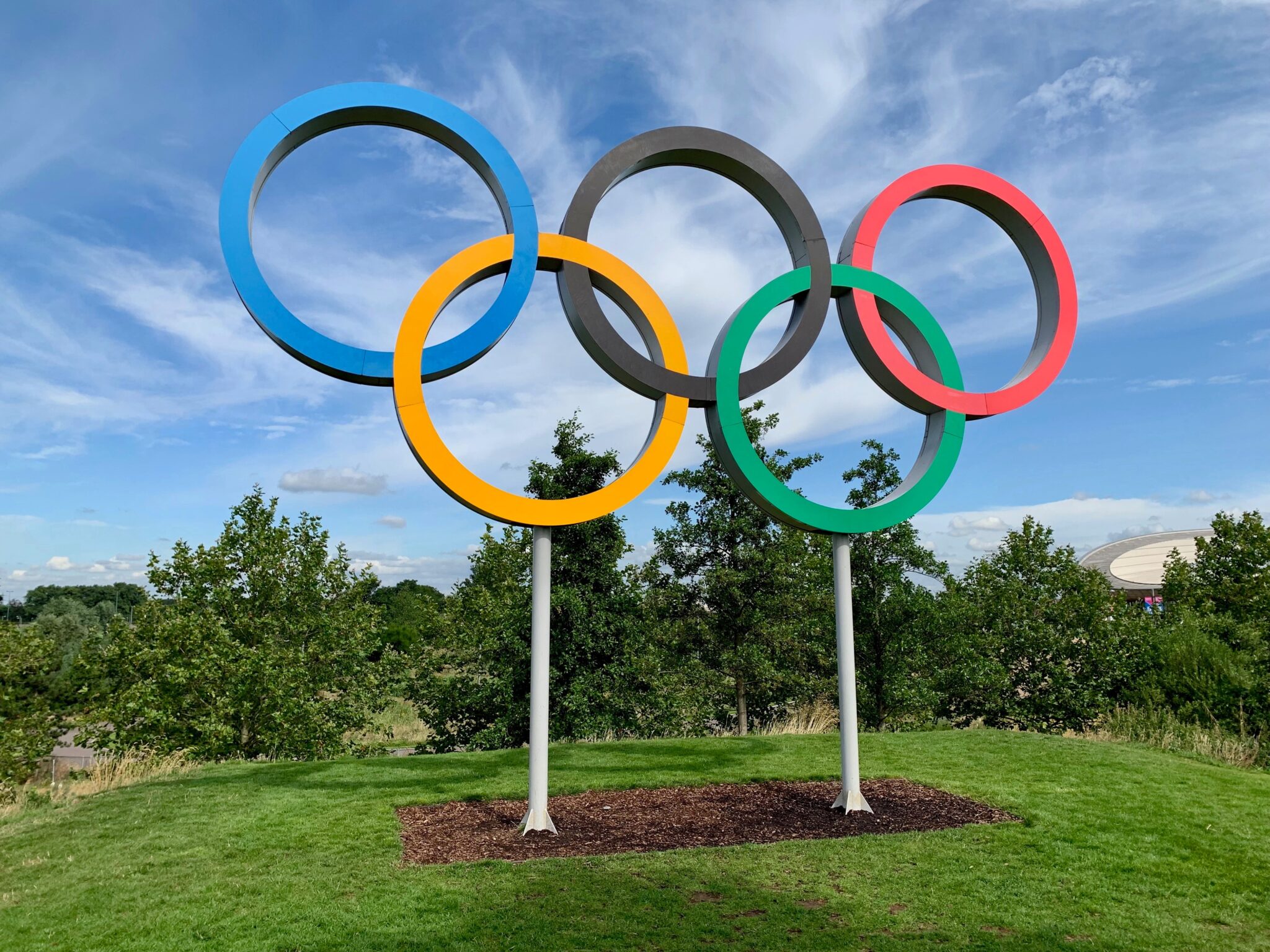BBC記事
BBCの記事です。「東京オリンピック、なんでキャンセルしないの?」といったところでしょうか。
今回もGoogle翻訳をベースに、英語を勉強中。赤字部分がGoogleさんに抗って(?)、訳してみたところです。

ちなみに、Google翻訳の拡張機能を利用することで、英文が自動的に翻訳されます。便利な時代になりました (^o^)

第1段落
The Tokyo Olympics are now just over two months away and calls to ditch the Games in the face of the pandemic are getting louder by the day. So why isn’t Japan talking about cancelling the Games? The answer as it turns out, is not that simple.
The situation is not looking great in Japan.
A coronavirus state of emergency has been extended in the capital Tokyo and three other major prefectures as cases continue to rise.
Yet there’s been no word about cancelling the Games, despite both health experts and public opinion being stacked against them.
Current polls in Japan show nearly 70% of the population do not want the Olympics to go ahead, but the International Olympic Committee (IOC) remains steadfast that the spectacle will take place.
Japan has long insisted there was no question the Olympics, which should have taken place last summer, would be held and will be safe.
Yet earlier this week, Prime Minister Yoshihide Suga for the first time appeared to bow to the pressure of public opinion, saying that the government would “not put the Olympics first” – but adding that ultimately, the decision would lie with the IOC.
So who actually wields the power to cancel the Games – and is a cancellation likely to happen?
東京オリンピックはもう2か月余りで、パンデミックに直面してオリンピックをやめるよう呼びかける声は日ごとに大きくなっています。では、なぜ日本は大会のキャンセルについて話していないのですか?結局のところ、答えはそれほど単純ではありません。 日本の状況は良くありません。 コロナウイルスの非常事態宣言は、首都東京と他の3つの主要な都道府県でケースが増え続けているために拡大しています。 それでも、健康の専門家と世論の両方が彼らに対して積み重なっているにもかかわらず、大会をキャンセルすることについての言葉はありませんでした。 日本での現在の世論調査では、人口の70%近くがオリンピックの開催を望んでいないことが示されていますが、国際オリンピック委員会(IOC)は、ショーが行われることについて揺るぎはありません。 日本は、昨年夏に開催されるべきオリンピックが開催され、安全であることに疑問の余地はないと長い間主張してきた。 しかし今週初め、菅義偉首相は初めて世論の圧力に屈したようで、政府は「オリンピックを最優先しない」と述べたが、最終的にはIOCに決定が委ねられるだろうと付け加えた。 では、誰が実際にゲームをキャンセルする力を行使しますか?そしてキャンセルが発生する可能性はありますか?
第2段落
The contract between the IOC and host city Tokyo is straightforward: There’s one article regarding cancellation and it only gives the option for the IOC to cancel, not for the host city.
That’s because the Olympic Games are the “exclusive property” of the IOC, international sports lawyer Alexandre Miguel Mestre told the BBC. And as the “owner” of the Games, it is the IOC that can terminate said contract.
One reason given to justify a cancellation – aside from things like war or civil disorder – is that if “the IOC has reasonable grounds to believe, in its sole discretion, that the safety of participants in the Games would be seriously threatened or jeopardised for any reason whatsoever”. Arguably, the pandemic could be seen as such a threat.
The Olympic charter also stipulates that the IOC should ensure “the health of the athletes” and promote “safe sports”, Mr Mestre says, but despite all this, the IOC seems determined to go ahead.
So could Japan go against the IOC and pull out itself?
“Under various clauses within this host city agreement, if Japan was to unilaterally cancel the contract, then by and large, the risks and losses would fall with the local organising committee,” Professor Jack Anderson at the University of Melbourne told the BBC.
IOCと開催都市東京との間の契約は単純です。キャンセルに関する条項が1つあり、開催都市ではなく、IOCがキャンセルするという選択肢のみが提供されています。 これは、オリンピックがIOCの「独占的財産」であるためです、と国際スポーツ弁護士のアレクサンドルミゲルメストレはBBCに語りました。そして、ゲームの「所有者」として、上記の契約を終了できるのはIOCです。 戦争や市民の混乱などを除いて、キャンセルを正当化する理由の1つは、「IOCが独自の裁量で、大会の参加者の安全が深刻な脅威にさらされたり、危険にさらされたりすると信じる合理的な理由がある場合です。理由は何でも」。間違いなく、パンデミックはそのような脅威と見なされる可能性があります。 オリンピック憲章はまた、IOCが「アスリートの健康」を確保し、「安全なスポーツ」を促進することを規定している、とメストレ氏は言いますが、それにもかかわらず、IOCは前進することを決意しているようです。 では、日本はIOCに反対し、自らを撤退させることができるでしょうか。 メルボルン大学のジャック・アンダーソン教授は、「この開催都市協定のさまざまな条項の下で、日本が一方的に契約をキャンセルした場合、概して、リスクと損失は地元の組織委員会に委ねられるだろう」と語った。
第3段落
The sports law expert explains that the contract is fairly typical and that of course Tokyo knew what it signed up to. What it didn’t know was that a global pandemic would enter the picture.
“Contracts can foresee certain contingencies, but the nature of the current situation is obviously unprecedented,” he says.
“The Olympics are the biggest sporting event on the calendar, there are billions at stake for Japan and also the IOC in terms of broadcasting sponsorship. It is a huge event and there are huge contractual obligations for all sides.”
Hence, the only realistic scenario is Japan pulling the plug jointly with the IOC, staying within the framework of their contract.
If that happens, that’s where insurances would come in: The IOC has insurance, the local organising committee has insurance and the various broadcasters and sponsors will also have insurance.
“It’s probably safe to say that if the Tokyo Olympics is cancelled, it would probably be the biggest insurance pay-out event of its kind, there’s no question about that,” Prof Anderson says.
Insurance would cover the concrete expenses by the organisers, but it would hardly cover all of the indirect cost raked up by investments across the country in anticipation of the spectacle – hotels and restaurants for example, that might have undergone renovations in preparations for tourists they thought they would receive.
スポーツ法の専門家は、契約はかなり典型的であり、もちろん東京はそれが何にサインアップしたかを知っていたと説明しています。それが知らなかったのは、世界的大流行がその状況に入るということでした。
「契約は特定の不測の事態を予見することができますが、現在の状況の性質は明らかに前例のないものです」と彼は言います。
「オリンピックは暦上最大のスポーツイベントであり、日本とIOCにとって、放送スポンサーシップの面で数十億の危機に瀕しています。これは巨大なイベントであり、すべての側に巨大な契約上の義務があります。」
したがって、唯一の現実的なシナリオは、日本がIOCと共同でプラグを引き、契約の枠組み内にとどまるというものです。
それが起こった場合、保険が入ります。IOCには保険があり、地元の組織委員会には保険があり、さまざまな放送局やスポンサーにも保険があります。
「東京オリンピックが中止されれば、おそらくこの種の最大の保険支払いイベントになるだろうと言って間違いないだろう。それについては疑いの余地がない」とアンダーソン教授は言う。
保険は主催者による具体的な費用をカバーしますが、ショーを見越して全国の投資によって集められた間接費のすべてをカバーすることはほとんどありません-たとえば、ホテルやレストランは、彼らが考えた観光客の準備のために改装された可能性があります彼らは受け取るだろう。
第4段落
As of now, the uncertainty around the Games lingers on.
It’s been a rocky road – they were postponed from last year, the torch run got interrupted again and again, international fans won’t be allowed to come and now even competitions in completely empty stadiums are on the cards.
Few athletes have spoken out about the issue and they are likely torn over the issue. For those who make it, the Olympics are among the highlights of their career and what they have trained for for years.
At the same time, there’s the concern for personal and public health in the middle of a global pandemic.
Japan’s biggest sports star, tennis champion Naomi Osaka was one of the few to join the debate, but also only voicing cautious hesitation.
“Of course I want the Olympics to happen,” she said this week. “But I think there’s so much important stuff going on, especially the past year.
“For me, I feel like if it’s putting people at risk… then it definitely should be a discussion, which I think it is as of right now. At the end of the day, I’m just an athlete, and there is a whole pandemic going on.”
今のところ、大会をめぐる不確実性は長引いています。 それは岩だらけの道でした-彼らは去年から延期されました、トーチの実行は何度も中断されました、国際的なファンは来ることを許されません、そして今完全に空のスタジアムでの競争さえカードにあります。 この問題について発言したアスリートはほとんどおらず、彼らはこの問題について引き裂かれている可能性があります。それを成し遂げる人々にとって、オリンピックは彼らのキャリアのハイライトであり、彼らが何年にもわたって訓練してきたものの一つです。 同時に、世界的大流行の真っ只中にある個人および公衆衛生への懸念があります。 日本最大のスポーツスターであるテニスチャンピオンの大坂なおみは、討論に参加した数少ない選手の1人でしたが、慎重な躊躇を表明しただけでした。 「もちろん、オリンピックを開催したい」と彼女は今週言った。 「しかし、特に昨年は、非常に重要なことが起こっていると思います。 「私にとって、それが人々を危険にさらしているのではないかと思います...それなら間違いなく議論になるはずです。それは今のところだと思います。結局のところ、私はただのアスリートであり、そこで全体的なパンデミックが起こっています。」
第5段落
The US’ track and field team earlier this week cancelled its pre-Olympics training camp in Japan out of safety concerns. And even the governor of the province that would have hosted the team, said he believed “they made the best decision possible in the current situation”.
The same uncertainty trickles through from many of those involved in organising the Games.
Several of the towns who were set to host the athletes across the Tokyo region have reportedly pulled out for fear the programme might add to the spread of Covid.
One local governor this week said he had rejected requests to secure hospital beds for the athletes. Instead, he urged that a new postponement or possibly cancellation should at least be considered.
A doctors union this week said in a statement to the government that it was “impossible” to hold the Games given the development of the pandemic.
Few of these things are clear-cut calls for the Games to be cancelled, but with the warnings by health experts and public opinion turning against the games, the trickle of doubters is becoming a steady chorus over the past weeks.
米国の陸上競技チームは今週初め、安全上の懸念から、日本でのオリンピック前のトレーニングキャンプをキャンセルしました。そして、チームを主催したであろう州の知事でさえ、「彼らは現在の状況で可能な限り最善の決定を下した」と彼は信じていると述べた。 同じ不確実性が、ゲームの組織化に関与している多くの人々から浸透しています。 伝えられるところによると、東京地域全体でアスリートをホストするように設定された町のいくつかは、プログラムがCovidの普及に加わるのではないかと恐れて撤退した。 ある地方知事は今週、アスリートのために病院のベッドを確保するという要求を拒否したと述べた。代わりに、彼は、新たな延期または場合によってはキャンセルを少なくとも検討する必要があると主張した。 今週の医師組合は政府への声明の中で、パンデミックの進展を考えると大会を開催することは「不可能」であると述べた。 これらのうち、ゲームのキャンセルを明確に求めるものはほとんどありませんが、健康の専門家による警告と世論がゲームに反対することで、疑惑のトリクルは過去数週間にわたって着実な合唱になりつつあります。
第6段落
There is more at stake though than just the financial cost of cancelling the Olympics.
The next Games on the global calendar are already next year, the Winter Games in February 2022, hosted by regional rival China in Beijing.
So there is little doubt that overall, Japan is prepared to go to great lengths to get the Tokyo Games done.
The last time Japan hosted a Summer Olympics was in 1964 and at the time, they were seen as an important symbol for the country’s rehabilitation and rebuilding process after World War Two.
しかし、オリンピックをキャンセルするための経済的コスト以上のものが危機に瀕しています。 世界暦の次の大会はすでに来年、2022年2月の冬季大会であり、地域のライバルである中国が北京で主催しています。 ですから、全体として、日本が東京オリンピックを終わらせるために多大な努力をする用意があることは疑いの余地がありません。 日本が最後に夏季オリンピックを開催したのは1964年で、当時、日本は第二次世界大戦後のリハビリテーションと再建プロセスの重要なシンボルと見なされていました。
第7段落
For the Tokyo 2020/21 Games, there’s again a symbolic significance, Prof Anderson explains.
“Japan has seen economic stagnation for a long time, there has been the tsunami and the nuclear disaster of Fukushima, so the Games would been as symbolic of a revival of Japan,” he says. “It does take a special importance in that sense.”
Ultimately, the question of whether the Games should go ahead is separate from whether they will go ahead. In the history of the modern Olympics, there have been only three instances the spectacle got cancelled: in 1916, 1940 and 1944 – all three cases due to the two World Wars.
So despite mounting headwinds, the IOC’s refusal to even consider a cancellation has most observers agreeing that this year’s Olympics will indeed go ahead and kick off on 23 July – in what shape or form still remains unclear.
東京2020/21大会では、再び象徴的な重要性があります、とアンダーソン教授は説明します。
「日本は長い間経済の停滞を経験しており、福島の津波と原発事故があったので、大会は日本の復活の象徴であっただろう」と彼は言う。 「その意味では特に重要です。」
最終的に、ゲームを先に進めるかどうかの問題は、ゲームを先に進めるかどうかとは別のものです。現代のオリンピックの歴史の中で、光景がキャンセルされたのは3回だけでした。1916年、1940年、1944年です。2回の世界大戦による3回の事件すべてです。
したがって、逆風が高まっているにもかかわらず、IOCがキャンセルを検討することさえ拒否しているため、ほとんどのオブザーバーは、今年のオリンピックが実際に7月23日に開始され、どのような形や形式で始まるかについてはまだ不明であることに同意しています。
本日も読んでいただき、ありがとうございました。翻訳内容は、微力ながら少しずつ更新して行こうと思っております(翻訳ミス等はご容赦ください🙇)。












